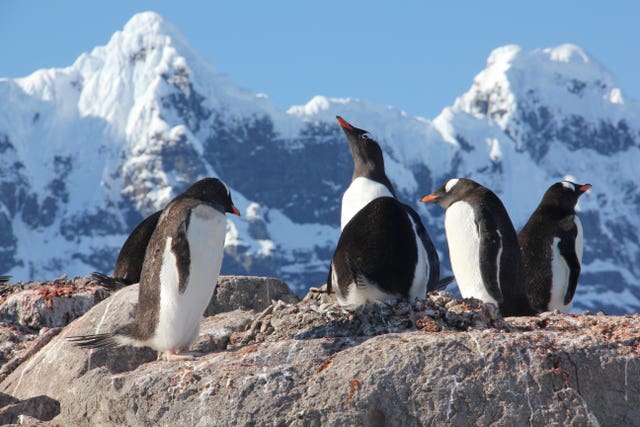
Defence officials from Chile met at the bottom of the planet on Thursday in a bid to bolster territorial claims in Antarctica as tensions escalate over Russia’s manoeuvres in the polar region.
Members of Chile’s parliamentary defence committee flew to a desolate air base for a meeting billed as an assertion of national sovereignty.
Singling out Russia as posing such a threat, committee member Camila Flores said: “We are going to be sitting in Antarctica in an act of sovereignty, of safeguarding and supporting our national integrity in the face of any threats.”
They revealed little about their talks at the glacier-filled base, beyond saying they addressed “the prevailing geopolitical conditions” on the white continent that has vast mineral resources, fresh water reserves and no government.

The meeting comes amid media reports surrounding the discovery of massive oil reserves in Antarctica in 2020 when the Russian polar research vessel Alexander Karpinsky reportedly uncovered around 500 billion barrels of crude oil.
The issue resurfaced earlier this month in a UK parliamentary session where experts warned Russia’s geological surveys could jeopardise the decades-long ban on mining in the region.
Russia’s surveys took place in the Weddell Sea, where Chile’s territorial claims overlap with those of Britain and Argentina, according to documents presented to the British parliament.
“We are going to continue defending what we believe is fair,” said Francisco Undurraga, head of Chile’s defence committee, condemning the “crafty aspirations” of nations rushing to assert greater influence over Antarctica in an increasingly energy-hungry world.
When reports of Russian resource-extraction projects surfaced earlier this month, Argentina demanded to know whether Russia had scientific or economic intentions.
Chilean President Gabriel Boric promised to “firmly oppose any commercial exploitation of minerals and hydrocarbons.”
Historic tensions over Antarctic claims have also re-emerged between Mr Boric’s left-wing government and Argentina’s far-right government.
In an effort to reshape Argentina’s foreign policy in line with the United States, Argentine President Javier Milei last month announced the construction of a southern naval base with US involvement to help Argentina stake claim to Antarctica, drawing complaints from Chile’s foreign ministry.
Geopolitical competition is just the latest issue to test the 53-nation Antarctic Treaty, which in 1959 enshrined the territory as a scientific preserve used only for peaceful purposes.
Rising sea levels due to climate change, unregulated tourism and krill fishing in the Southern Ocean are just a few other challenges that the consensus-based system is struggling to address.


Comments: Our rules
We want our comments to be a lively and valuable part of our community - a place where readers can debate and engage with the most important local issues. The ability to comment on our stories is a privilege, not a right, however, and that privilege may be withdrawn if it is abused or misused.
Please report any comments that break our rules.
Read the rules hereLast Updated:
Report this comment Cancel